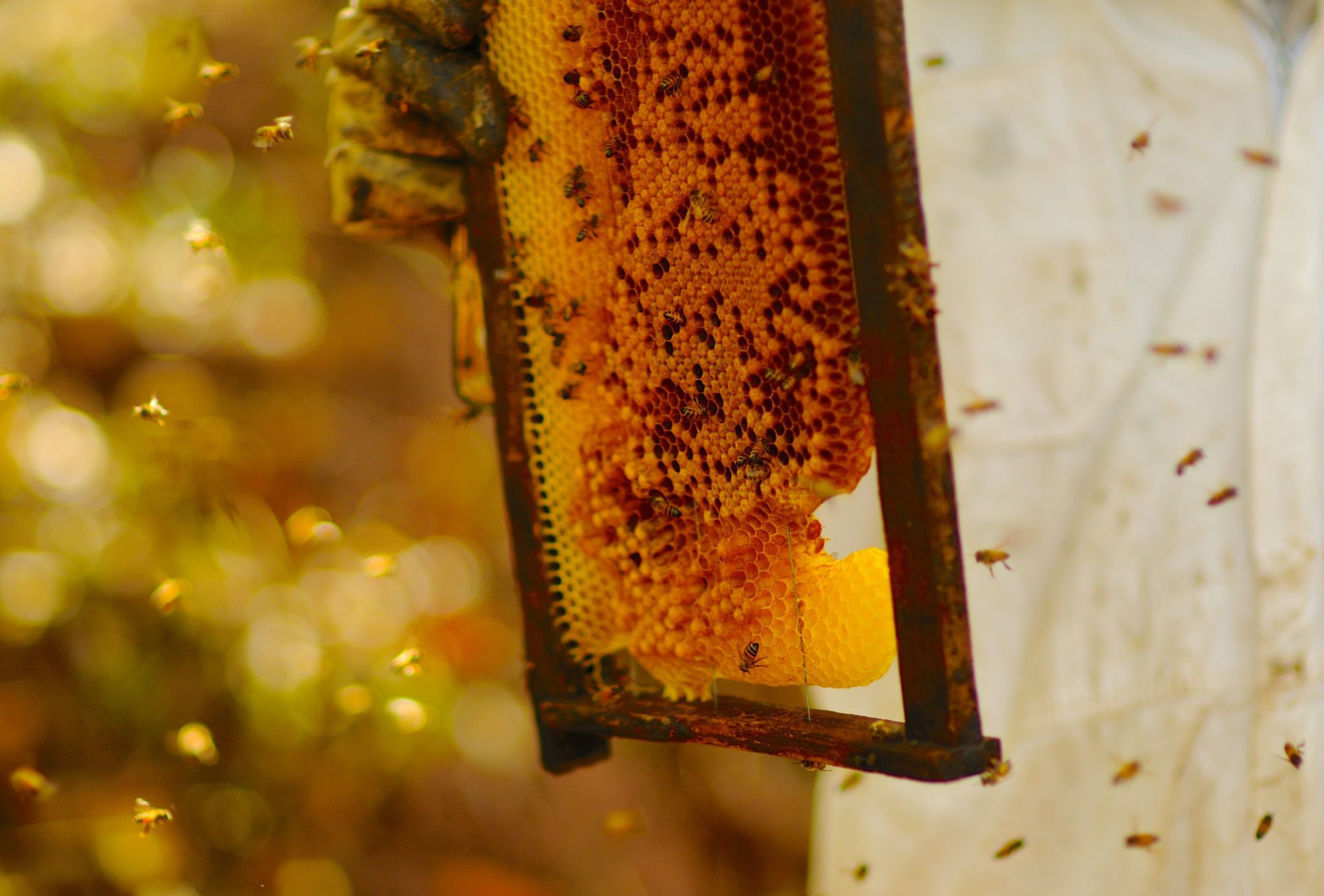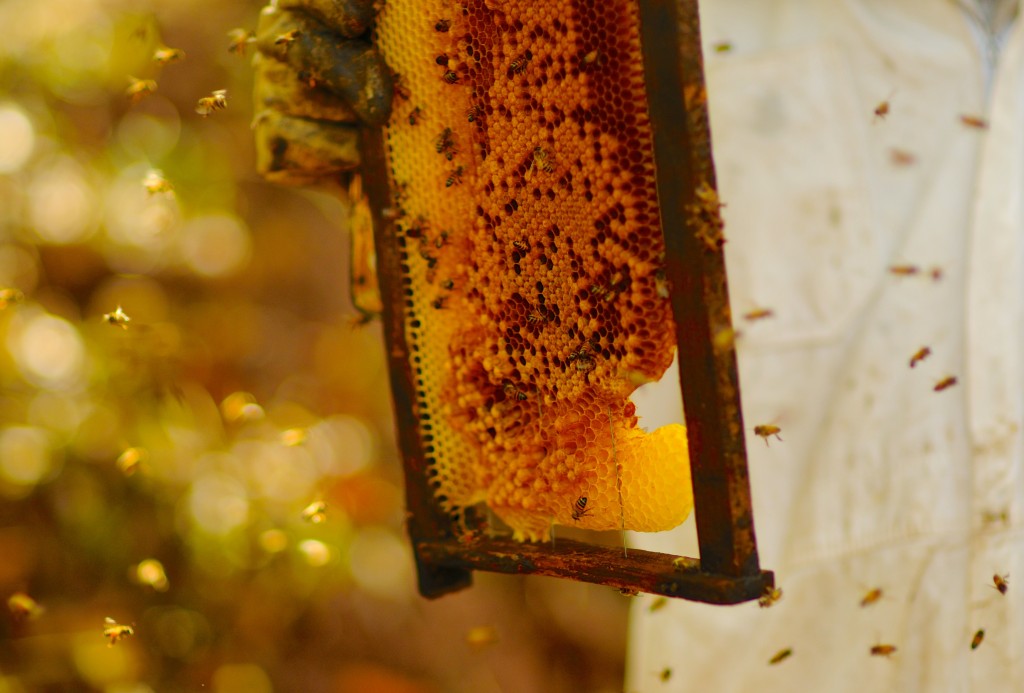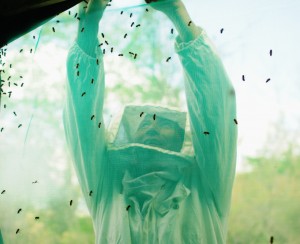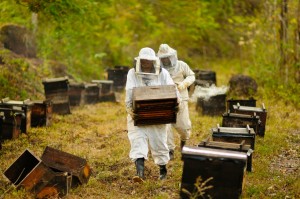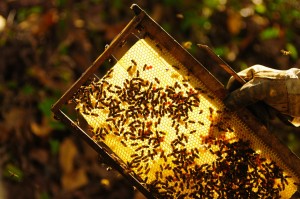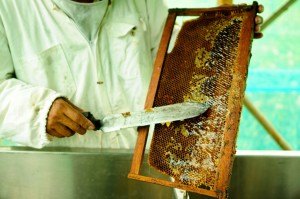Honeybee Pilot Hives Begin Buzzing
Thirty hives on Nicaragua farm undergo first honey extraction harvest
*Updated May 2020. Please note that the most recent information regarding our farm initiative in Nicaragua can be found here.
We’re thrilled to announce the launch of honey production on our farm investment in Nicaragua. With a pilot launch of 30 hives buzzing away (ultimately the farm will play host to 100 hives) we are already beginning to see financial returns on our investment. Our busy bees wasted no time after being moved into their new homes, and we have already completed our inaugural honey harvest, with many more to come over the course of the season.
Our pilot launch of 30 honeybee hives is providing not only an opportunity for the farm to begin revenue generating operations, but also serving as an important professional development opportunity for our land caretaker, Carlos. During our first honey harvest, Carlos was mentored by a local master apiculture technician, Fabio, and the two men made for an impressive team.
Prior to harvest, the duo built a small extraction house called the “casita” next to the apiary. The casita eliminates any possibility of contamination of the honey in its route between the hives and the extraction equipment. Within the casita the team places a stainless steal sink and the extraction chamber, where 4 honey panels are inserted at once and spun for 20-30 seconds at high speed while the honey is ejected and collected at the bottom of the chamber.
The team evaluates each honey panel individually. Some panels are too young or are nourishing bees, which need to eat some of the honey to mature and make more, in which case they are separated and left alone. The mature panels have the combs almost entirely filled with honey and are ready to be emptied.
In the first harvest, slightly more than 5 buckets of honey were collected (about half of a large barrel). With honey visits scheduled in 15 day intervals, with every other visit being a harvest, Carlos will have many opportunities to learn from the local technician as refine our production efforts and our honeybee investment will quickly begin to build a sustainable revenue stream for high-impact programming provided by our social impact partner, Las Tías.
The pilot honeybee hives were funded in part by an IndieGoGo campaign as well as support from attendees of the 2015 CPAC Serves event. We want to sincerely thank those individuals who made this work possible, and all Spark investors who continue to make future farm growth possible.




